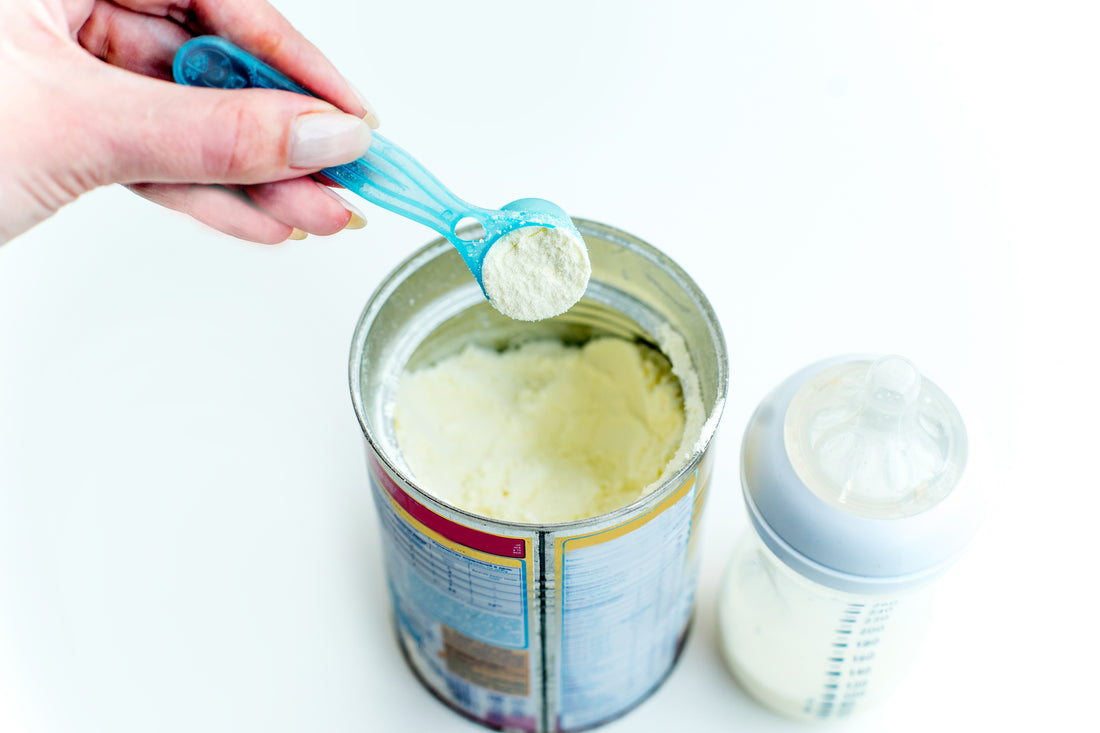
Why Is Baby Formula So Important?
Share
As a parent, have you ever wondered "why baby formula?" Formula feeding is extremely common, but not a lot of people are aware of why it's important and how it works. With the formula shortage causing parents to panic all across the country, doubts pertaining to baby or infant formula are more prevalent than ever.
So, in this article, let's take a close look at formula feeding.
Do babies need formula?
We'll explain.

Mother's milk is the best source of nutrition for babies, but baby formula can be a close second. When there's no breastfeeding, baby formula is essential for babies because it provides them with vital nutrients that they need to grow and develop.
Thus, babies don't need formula when there's breastmilk available, but they do need it when there's no breastmilk.
Baby formula can help to supplement a mother's milk supply when necessary, and it can also be used as a sole source of nutrition for babies who are unable to breastfeed. It is also carefully designed to meet a baby's nutritional needs, and it can help to ensure that a baby grows and develops properly.
For these reasons, baby formula is an important part of infant care.
Is formula better than breastmilk?

No. Breastmilk is the perfect food for babies, as multiple studies have shown. For the first six months, a baby needs absolutely nothing but breastmilk for nutrition and hydration. The nutrients in breastmilk are properly absorbed by the baby's body — think of breastmilk as being literally tailor-made for your little one's system.
In short, when it comes to breastfeeding vs. formula feeding, breastfeeding is the ideal choice.
However, if you cannot breastfeed for whatever reason, then baby formula is the perfect choice for your little one. For example, baby formula is the best option for mothers who have HIV or AIDS — it will help keep the baby healthy and safe from infection.
Formula is especially important during the first few months of a baby's life. During this time, babies' brains and bodies are growing and developing at an amazing rate. Formula feeding provides the nutrients (in the right amounts) that babies need to support this rapid growth.
Why do babies need baby formula instead of cow's milk?

Some people believe that cow's milk is a suitable alternative to formula, but this is not the case. So, why is cow milk bad for babies?
Cow's milk (or any other milk substitute, such as almond milk or soy milk) does not provide the right balance of nutrients for babies, and it can actually be quite harmful when given over a long period of time. Also, the minerals and proteins that cow's milk does contain are too much for your baby's developing kidneys to handle. It is also difficult for your little one to digest cow's milk or any other milk substitute.
Babies who drink cow's milk can develop iron deficiency anemia, intestinal bleeding, and other health problems.
Now, in the midst of the formula shortage, you might be wondering how to feed your little one. First and foremost, speak to your pediatrician as they will be able to take into consideration your baby's specific needs (such as any allergies, illnesses, and/or nutritional deficiencies).
If your baby is older than six months, then, according to the CDC, you can give them pasteurized (not raw), unflavored, whole cow’s milk if there's an unavailability of formula. However, don't give your baby cow's milk for more than one week. Plus, speak to your child's doctor about cow's milk.
You can also try a different brand (but similar type) of infant formula if the one you're currently using is unavailable. Speak to your paediatrician and refer to this chart to take a look at comparable formulas.
Always make sure you're buying an FDA-approved infant formula. Also, remember that it will take your baby some time to get used to a different brand of formula, so be patient.
Is it bad to dilute infant formula?
Yes, it's bad to dilute baby or infant formula. Doctors across the country are urging parents not to dilute baby formula to make it last longer.
Adding more water than necessary to the baby formula will reduce its nutrient levels and can lead to an electrolyte imbalance in your baby, which can cause seizures. If you feed your baby watered-down formula for a long period of time, your baby's development will get severely impaired.
So, when it comes to diluting infant formula, always err on the side of caution and don't do it.
Formula feed the right way
It's important to choose the right formula for your baby and to follow the instructions on the label carefully. Do not try homemade formulas as they can be dangerous for your baby.
Additionally, don't give your baby toddler formula just because there's a shortage of infant or baby formula. Further, always read the label of the infant formula carefully. And if you're purchasing formula online then make sure it's from reputed sites!
Nourish your baby's skin with Nature's Baby Organics
What you put on your baby is just as important as what you feed your baby. So, if you're looking for USDA Certified organic, toxin-free, minimially-processed, and sensitive skin-friendly baby care products, then Nature's Baby Organics has got you covered!
